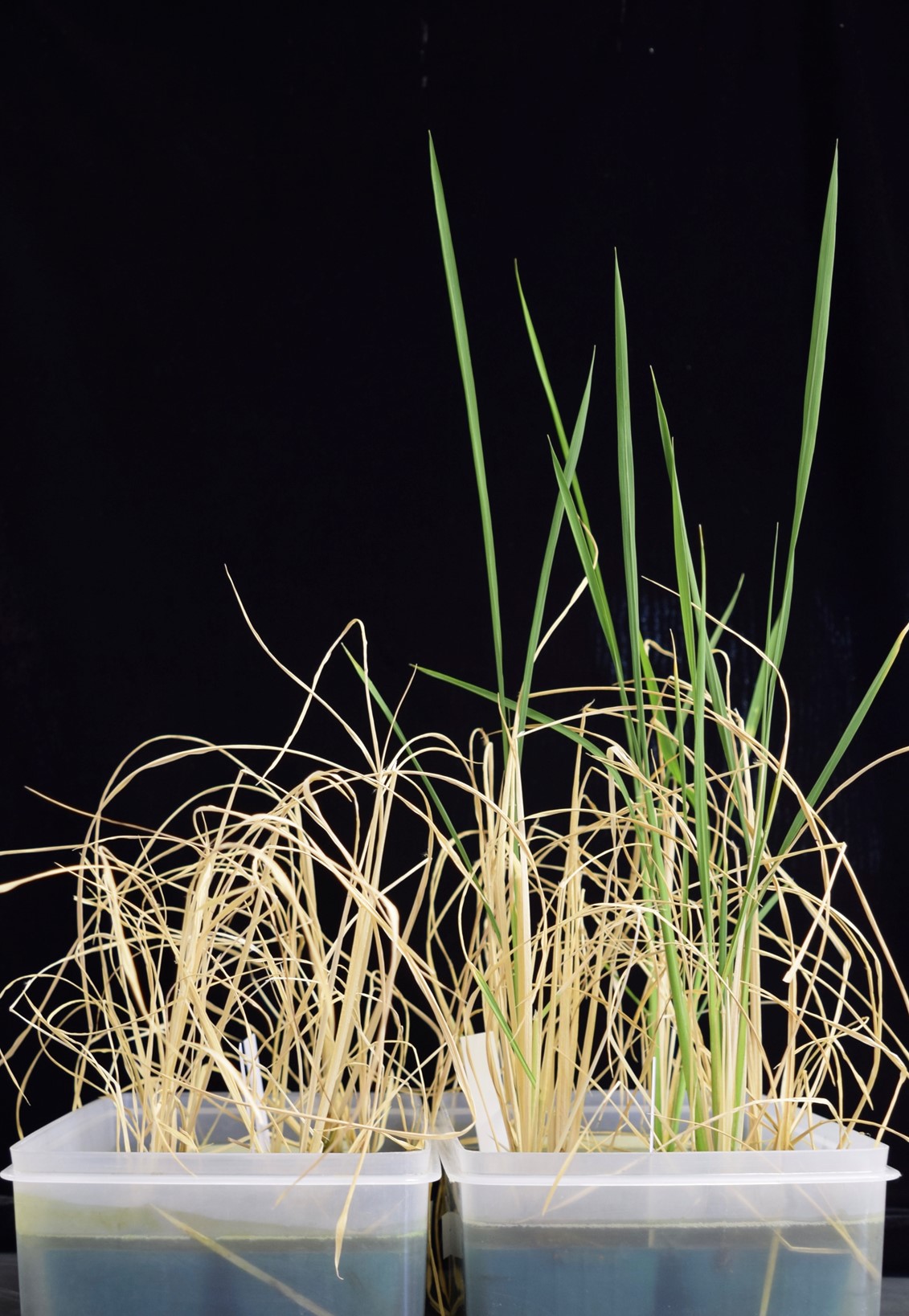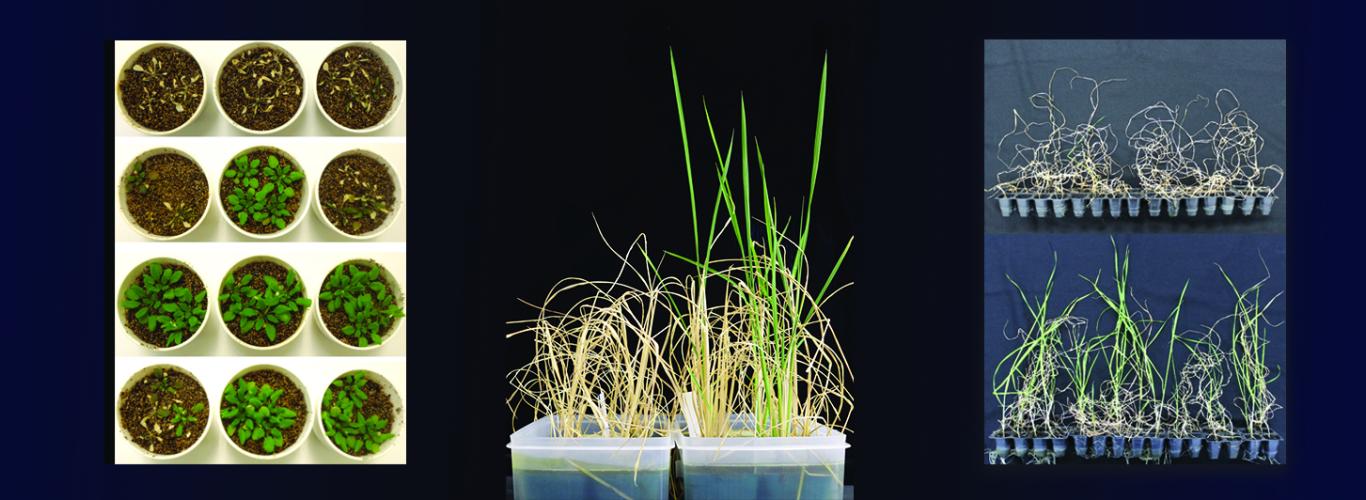LUMS Faculty’s Research on Controlling Drought Stress in Plants Highlighted in International Media
Droughts tend to cause stress and consequently result in significant losses to crop plants and mitigating this damage is essential for ensuring a sustainable food supply for the increasing global population. LUMS faculty member, Dr. Khurram Bashir and researchers at RIKEN, Japan have discovered a simple way to protect plants from drought stress. They discovered that the exogenous application of ethanol, an inexpensive and widely used chemical, significantly enhances drought tolerance in arabidopsis, rice, and wheat plants through the induction of stomatal closure, gluconeogenesis, and sugar accumulation. Ethanol application is a simple solution for increasing global crop production under water-limited conditions.
This study, ‘Ethanol-Mediated Novel Survival Strategy against Drought Stress in Plants’ has received world-wide recognition and has been highlighted in international media such as CNN, Yahoo News, MSN, The Guardian (UK), Telegraph (UK), and phys.org among others.
Dr. Bashir received his PhD from the University of Tokyo, Japan under the supervision of Prof. Naoko Nishizawa, and later worked at RIKEN in the Plant Genomic Network Research Team led by Prof. Motoaki Seki. Currently, he is an Associate Professor at the Department of Life Sciences at the Syed Babar Ali School of Science and Engineering (SBASSE), LUMS. His lab focuses on studying abiotic stress response in plants, and the development of field technologies to mitigate abiotic stresses. Dr. Bashir is also a Visiting Scientist at the Plant Genomics Network Research Team, RIKEN CSRS, Yokohama, Japan.

This image shows ethanol-treated rice plants (right) and untreated plants (left).
During a conversation with Dr. Bashir, he spoke about the importance of his study, how climate change can affect humans, and how technology can be used to improve crop production in the future.
What are you currently teaching at LUMS? What are your research interests?
I am a biologist, associated with the Department of Life Sciences at SBASSE. I am teaching Plant Physiology, Genetics, Genetics and Genomics, Cell Biology, and critical thinking and scientific writing.
My lab focuses on studying abiotic stress response in plants, and the development of field technologies to mitigate abiotic stresses. We are interested in enhancing crop production under challenging environmental conditions as a result of global warming.

Dr. Khurram Bashir collecting wheat plants
What inspired you to work in this area? How can it impact agriculture practices in Pakistan?
Plants are amazing creatures. Being sessile, plants have evolved to communicate with the environment through sophisticated mechanisms. Anyone, who observes plants closely, could fall into love with these creatures.
The global population is rapidly increasing and ensuring food security is becoming challenging day by day. Pakistan is the fifth largest country by population and its growth rate is the highest among the top five countries.
Environmental changes are significantly affecting crop production in Pakistan and it’s important to develop technologies to improve crop production for sustainable agriculture. Thus, the current technology could be helpful to improve agricultural production in Pakistan.
Dry soil during a drought
Which departments and institutions have you collaborated with for this initiative?
I spent most of my career in Japan. Before joining LUMS, I was working for RIKEN (RIKAGAKU KENKYUJO) a prestigious Japanese research institute. We conceived the idea there. Currently, I am a visiting scientist at RIKEN and have also signed an agreement for collaborative research. LUMS is the only institution outside Japan contributing to this study.
How has LUMS supported you during your research?
I joined LUMS in 2021 while I was in Japan. LUMS is fully supporting research in agricultural sciences and has allocated around one acre of land inside the campus for agricultural research and is also supporting the construction of two new greenhouses. Thus, the environment here is very supportive.
With the recent devastation due to climate change, what lessons can be learnt from your research about a new survival strategy for crops?
Currently, scientists are utilising two major approaches, plant breeding and genetic engineering to improve crop production under harsh environmental conditions such as limiting water, and high temperatures. The low acceptability of genetically modified crops urges the need to develop better technologies. Thus, metabolic priming with cheap and widely used chemicals could play a significant role in improving crop production. This technology has great potential to improve crop production in the future.
Your work is being acknowledged on many international platforms. How does it highlight the value of research coming from Pakistan?
Simple ideas could bring a lot of positive changes to society. It’s important to secure the support of concerned people to implement these results. We are trying to do large-scale experiments in Pakistan with the support of the Japanese government. However, it is difficult to convince the government officials here to support us. Moreover, Pakistan needs to invest more in science and in particular, basic science.























